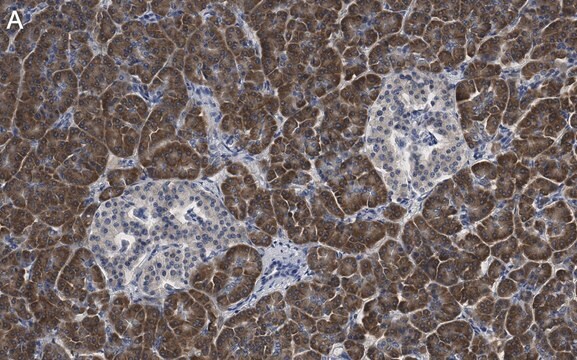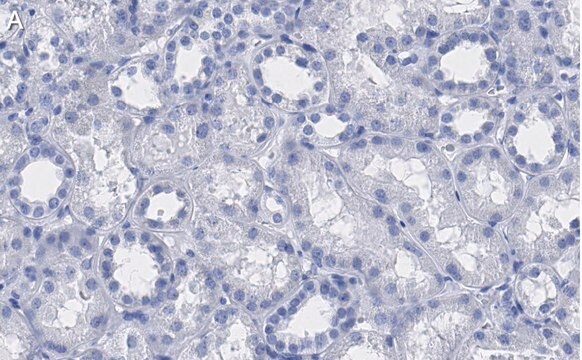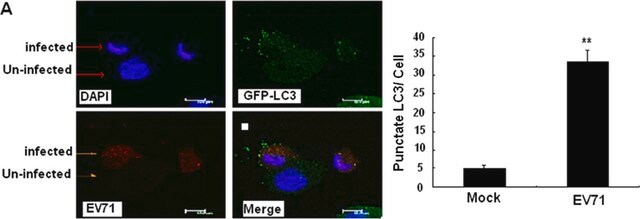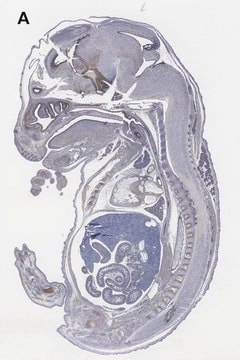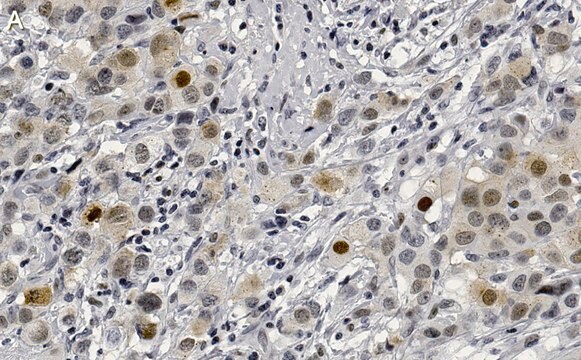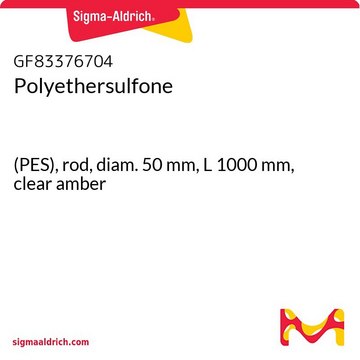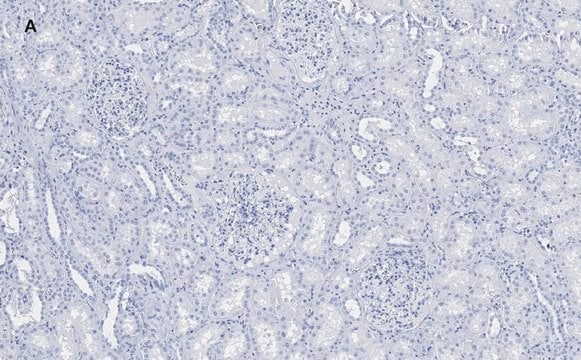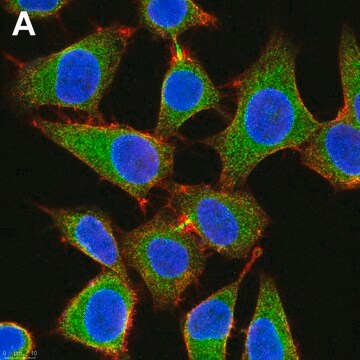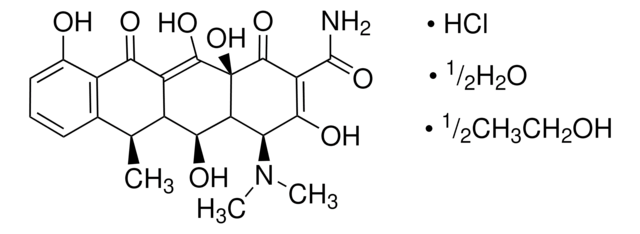ZRB1483
Anti-GADD153/DDIT3 Antibody, clone 3I18 ZooMAb® Rabbit Monoclonal

recombinant, expressed in HEK 293 cells
Synonym(s):
DNA damage-inducible transcript 3 protein;DDIT-3;C/EBP zeta;C/EBP-homologous protein;CHOP;C/EBP-homologous protein 10;CHOP-10;CCAAT/enhancer-binding protein homologous protein;Growth arrest and DNA damage-inducible protein GADD153
About This Item
Recommended Products
biological source
rabbit
Quality Level
recombinant
expressed in HEK 293 cells
conjugate
unconjugated
antibody form
purified antibody
antibody product type
primary antibodies
clone
3I18, recombinant monoclonal
description
recombinant, expressed in HEK 293 cells
product line
ZooMAb® learn more
form
lyophilized
mol wt
calculated mol wt 19.17 kDa
observed mol wt ~27 kDa
purified by
using Protein A
species reactivity
rat, mouse, human
packaging
antibody small pack of 25 μL
greener alternative product characteristics
Waste Prevention
Designing Safer Chemicals
Design for Energy Efficiency
Learn more about the Principles of Green Chemistry.
enhanced validation
recombinant expression
Learn more about Antibody Enhanced Validation
sustainability
Greener Alternative Product
technique(s)
ELISA: suitable
affinity binding assay: suitable
western blot: suitable
isotype
IgG
epitope sequence
Unknown
Protein ID accession no.
UniProt accession no.
greener alternative category
, Aligned
shipped in
ambient
storage temp.
2-8°C
target post-translational modification
unmodified
Gene Information
human ... DDIT3(1649)
General description
Specificity
Immunogen
Application
Evaluated by Western Blotting in NIH3T3 cells nuclear extract.
Western Blotting Analysis: A 1:1,000 dilution of this antibody detected GADD153/DDIT3 in NIH3T3 cells nuclear extract.
Tested applications
Western Blotting Analysis: A 1:1,000 dilution from a representative lot detected GADD153/DDIT3 in lysate from C6 cells and in HeLa cells treated with Tunicamycin (5 g/mL; 6 h).
Enzyme Immunoassay Analysis (ELISA): Serial dilutions from a representative lot detected recombinant Human GADD153/DDIT3.
Affinity Binding Assay: A representative lot of this antibody bound GADD153 DDIT3 with a KD of 7.2 x 10-6 in an affinity binding assay.
Note: Actual optimal working dilutions must be determined by end user as specimens, and experimental conditions may vary with the end user
Evaluated by Western Blotting in NIH3T3 cells nuclear extract.
Western Blotting Analysis: A 1:1,000 dilution of this antibody detected GADD153/DDIT3 in NIH3T3 cells nuclear extract.
Target description
Physical form
Reconstitution
Storage and Stability
Legal Information
Disclaimer
Not finding the right product?
Try our Product Selector Tool.
Storage Class Code
11 - Combustible Solids
WGK
WGK 1
Flash Point(F)
Not applicable
Flash Point(C)
Not applicable
Choose from one of the most recent versions:
Certificates of Analysis (COA)
Don't see the Right Version?
If you require a particular version, you can look up a specific certificate by the Lot or Batch number.
Already Own This Product?
Find documentation for the products that you have recently purchased in the Document Library.
Our team of scientists has experience in all areas of research including Life Science, Material Science, Chemical Synthesis, Chromatography, Analytical and many others.
Contact Technical Service